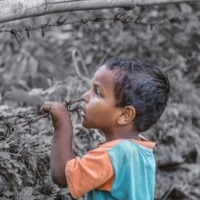Non-Governmental Organizations (NGOs) play a pivotal role in shaping United Nations (UN) policies, particularly in the complex and often contentious area of migration. As the world grapples with unprecedented levels of displacement and migration, the need for effective and humane policies has never been more urgent. NGOs serve as critical intermediaries, bridging the gap between affected communities and policymakers.
They bring firsthand knowledge of the challenges faced by migrants and refugees, advocating for their rights and needs at various levels of governance. This advocacy is not merely about raising awareness; it involves strategic engagement with UN bodies to influence policy frameworks that govern migration. The influence of NGOs extends beyond mere representation; they actively participate in the formulation of policies that impact millions of lives.
By leveraging their expertise, networks, and grassroots connections, NGOs can provide valuable insights that inform UN discussions and decisions. Their role is multifaceted, encompassing research, advocacy, and direct service provision. As the UN continues to evolve its approach to migration, the contributions of NGOs are essential in ensuring that policies are not only comprehensive but also grounded in the realities faced by migrants around the globe.
The Influence of NGOs on UN Policy-Making Processes
Influencing Policy through Advocacy and Lobbying
NGOs engage in advocacy efforts to ensure that the voices of marginalized groups are heard in high-level discussions. For example, during the Global Compact for Safe, Orderly and Regular Migration negotiations, numerous NGOs mobilized to advocate for the inclusion of human rights protections for migrants. Their persistent efforts highlighted the need for policies that prioritize safety and dignity, ultimately shaping the final text of the Compact.
Participating in UN Forums and Working Groups
NGOs participate in UN forums and working groups, providing expert testimony and recommendations based on their field experiences. This involvement allows them to directly influence the agenda and priorities of UN bodies.
Presenting Evidence-Based Arguments
By presenting data, case studies, and personal narratives from migrants themselves, NGOs can effectively illustrate the real-world implications of proposed policies. This evidence-based approach not only strengthens their arguments but also fosters a more nuanced understanding among policymakers about the complexities of migration.
Examples of Successful NGO Advocacy and Impact on UN Migration Policies
One notable example of successful NGO advocacy is the role played by organizations like Human Rights Watch and Amnesty International during the drafting of the Global Compact for Migration. These organizations mobilized extensive campaigns that highlighted the plight of vulnerable migrant populations, such as unaccompanied minors and victims of trafficking. Their advocacy efforts included public awareness campaigns, direct lobbying of member states, and participation in UN consultations.
As a result, key provisions were included in the Compact that emphasized the protection of human rights and the need for international cooperation. Another significant instance is the work done by local NGOs in response to the Syrian refugee crisis. Organizations such as the International Rescue Committee (IRC) have been instrumental in advocating for policies that address both immediate humanitarian needs and long-term integration strategies.
Their grassroots efforts have not only provided essential services to refugees but have also influenced UN agencies to adopt more inclusive approaches to refugee resettlement and support. By showcasing successful integration models and sharing best practices, these NGOs have helped shift the narrative around refugees from one of burden to one of potential contribution to host communities.
Challenges Faced by NGOs in Influencing UN Migration Policies
Despite their critical role, NGOs face numerous challenges in influencing UN migration policies. One significant hurdle is the political landscape surrounding migration issues, which can be highly polarized. In many countries, migration is a contentious topic that elicits strong reactions from various stakeholders, including governments and public opinion.
This environment can make it difficult for NGOs to advocate effectively, as they may encounter resistance or hostility from those who view migration through a narrow lens. Additionally, resource constraints often limit the capacity of NGOs to engage fully in policy advocacy. Many organizations operate on tight budgets and rely heavily on donor funding, which can be unpredictable.
This financial instability can hinder their ability to conduct research, mobilize communities, or participate in international forums where critical discussions take place. Furthermore, smaller NGOs may struggle to gain visibility or access to decision-makers within the UN system, making it challenging to amplify their voices in policy debates.
The Role of NGOs in Providing Support and Services for Migrants
Beyond advocacy, NGOs play a vital role in providing direct support and services to migrants. They often serve as frontline responders, offering essential services such as legal assistance, healthcare, shelter, and psychosocial support. For instance, organizations like Médecins Sans Frontières (Doctors Without Borders) provide medical care to migrants in crisis situations, ensuring that their health needs are met even in the most challenging environments.
This direct service provision not only addresses immediate needs but also empowers migrants by helping them navigate complex systems. Moreover, NGOs often engage in community-building initiatives that foster social cohesion between migrants and host communities. Programs that promote cultural exchange, language training, and employment opportunities can significantly enhance integration efforts.
By facilitating connections between migrants and local populations, NGOs help combat xenophobia and promote understanding. These initiatives not only improve the lives of migrants but also contribute to more inclusive societies.
The Role of NGOs in Monitoring and Reporting on UN Migration Policies
Monitoring and reporting are critical functions that NGOs fulfill in relation to UN migration policies. They play an essential role in holding governments accountable for their commitments under international agreements such as the Global Compact for Migration. Through rigorous data collection and analysis, NGOs can assess whether policies are being implemented effectively and whether they align with human rights standards.
For example, organizations like Refugees International conduct field research to evaluate how national policies impact migrants on the ground. Their reports often highlight gaps in implementation or areas where policies fall short of protecting migrant rights. By disseminating these findings widely—through publications, media outreach, and direct engagement with policymakers—NGOs can create pressure for change and encourage governments to adhere to their obligations.
Collaboration and Partnerships between NGOs and the UN on Migration Issues
Collaboration between NGOs and the UN is crucial for addressing migration challenges effectively. Many UN agencies actively seek partnerships with NGOs to leverage their expertise and grassroots connections. For instance, during humanitarian crises, UN agencies often rely on local NGOs to deliver aid and services where they are most needed.
This collaboration ensures that responses are context-specific and culturally sensitive. Additionally, joint initiatives between NGOs and UN bodies can amplify advocacy efforts. By working together on campaigns or policy proposals, both entities can pool resources and expertise to create a more significant impact.
For example, during global summits on migration, coalitions of NGOs often collaborate with UN agencies to present unified positions on key issues. This collective approach enhances visibility and credibility while fostering a sense of shared responsibility for addressing migration challenges.
The Future of NGO Engagement in Shaping UN Policies on Migration
Looking ahead, the future of NGO engagement in shaping UN policies on migration appears promising yet challenging. As global migration patterns continue to evolve due to factors such as climate change, conflict, and economic disparities, NGOs will need to adapt their strategies accordingly. Emphasizing innovative approaches—such as leveraging technology for advocacy or enhancing community engagement—will be essential for maintaining relevance in an ever-changing landscape.
Furthermore, fostering greater inclusivity within NGO networks will be crucial for amplifying diverse voices in migration discussions. Engaging with migrant-led organizations can provide invaluable perspectives that enrich policy debates and ensure that solutions are grounded in lived experiences. As NGOs continue to navigate complex political environments while advocating for migrant rights at the UN level, their resilience and adaptability will be key determinants of their success in shaping future policies.
In conclusion, NGOs are indispensable players in the realm of migration policy-making at the United Nations level. Their advocacy efforts have led to significant advancements in human rights protections for migrants while also providing essential services that address immediate needs. Despite facing challenges such as political resistance and resource constraints, their commitment to promoting justice and dignity for all migrants remains unwavering.
As we look toward the future, continued collaboration between NGOs and UN bodies will be vital for creating effective policies that respond to the complexities of global migration dynamics.









































